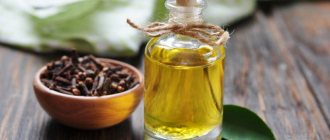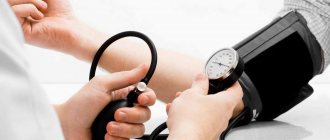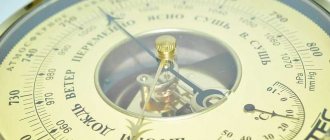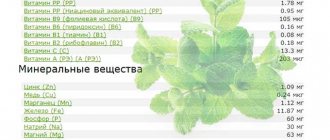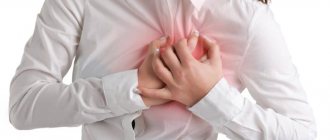In terms of insidiousness and severity of developing complications, hypertension ranks first among cardiovascular diseases. It is believed that normal blood pressure should be 120 over 70 or 80, but such a situation, especially in the case of an ordinary person, and not some astronaut, is already in the realm of science fiction. But, if you look at the question a little more softly, an increase in blood pressure to 140/90 is acceptable, however, such values should be alarming, indicating a high probability of hypertension.
If the blood pressure exceeds 140/90, this is a clear reason to diagnose hypertension. With the 1st degree of development of the pathology, the pressure ranges from 140/90 to 160/100 units.
In this case, the greatest negative impact is on the internal target organs:
- The heart is an organ that works in an intense mode, as a result of which hypertrophy of the left ventricle develops and disruption of the functioning of the aortic valve. Outwardly, this is manifested by attacks of tachycardia, which occurs with minimal physical exertion and shortness of breath.
- Brain - poor circulation, vasoconstriction causes a lack of oxygen supply to the brain, resulting in hypoxia. A person suffers from headaches, dizziness, nausea.
- Blood vessels - spastic compression of blood vessels occurs, atherosclerotic changes occur in the aorta and other large arterial vessels. Peripheral vessels suffer greatly, which manifests itself in pain in the calf muscles when walking, freezing of the hands and feet, and numbness of the extremities.
- Kidneys - in most people suffering from high blood pressure, renal dysfunction is detected, in particular, failures in the production of the active vasoconstrictor compound renin.
- Fundus vessels - with high blood pressure, a person’s visual acuity and clarity decreases, dark spots appear before the eyes, and “spots” constantly flash.
If the initial stage of hypertension is not diagnosed in time and treated, this is fraught with the development of severe complications - renal and heart failure, cerebrovascular accident, coronary artery disease. Unfortunately, early diagnosis of the pathology is significantly complicated by the fact that the initial stages of the disorder can occur without any painful symptoms. Without feeling any discomfort, a person learns about the problem by chance, visiting a doctor for another reason or undergoing a medical examination. Deterioration in well-being may already indicate a significant development of the disorder, and sometimes even be a harbinger of a hypertensive crisis.
Consequences of high blood pressure
High blood pressure can pose a serious threat to human life, as hypertension develops against this background and brain cells are affected. In addition, high blood pressure increases the risk of disruption of the normal functioning of the cardiovascular system and kidneys, and also causes poor blood circulation.
In medical practice, there are many clinical cases where the development of hypertension (constant increase in blood pressure) leads to a massive heart attack or stroke. For this reason, if your health worsens, it is imperative to seek emergency medical help.
How to normalize the condition?
In choosing treatment methods, everything depends on the nature of the condition. If this has not happened before, and the increase in blood pressure is caused by stress or accumulated fatigue, then medications most likely will not be needed. You need to open the window to provide fresh air into the room, lie down, take a few deep breaths and exhales. To lower blood pressure, you can take a tincture or tablet of valerian or motherwort; to relieve headaches, you can take citramon or aspirin. It is useful to drink a cup of weak tea with lemon without adding sugar.
If your health does not improve and your blood pressure continues to rise, you should call an ambulance.
Causes and symptoms
As a rule, hypertension is an independent disease in extremely rare cases. Typically, this pathological condition develops with various disorders in the endocrine system, malfunctions of the heart and against the background of problems with the musculoskeletal system. Often, increased blood pressure can be provoked by various social factors. High blood pressure is often inherited, so it is important to know the diseases of your parents.
Redness of the cheeks and swelling in the temples indicate high blood pressure
- increased fatigue;
- rapid heartbeat (arrhythmia);
- presence of tinnitus;
- cold hands and feet.
prolonged headaches;
With sudden jumps in blood pressure, blood rushes to the face, as evidenced by redness of the skin. There is often a severe headache (acute migraine) and black spots may appear before the eyes. Often a characteristic pain in the heart area makes itself felt.
Symptoms of high blood pressure
What to do if the pressure rises to 160 to 80 depends on the patient’s well-being. In most cases, the symptoms are pronounced, but some people may not notice the discomfort, which makes it difficult to detect the problem in a timely manner.
Symptoms of high systolic pressure:
- facial redness;
- headache concentrated in the back of the head;
- tremor of fingers;
- general emotional excitement;
- dyspnea;
- heart rate changes.
In this case, systolic hypertension can be accompanied by both tachycardia and bradycardia. The normal heart rate for systolic hypertension with a pressure of 160 over 80 is a pulse value of no more than 80 beats per minute. A decrease in heart rate to 60 with high blood pressure is called bradycardia. This condition is dangerous due to disruption of the oxygen supply to important organs and indicates exhaustion of the heart or the hormonal nature of hypertension.
An increase in heart rate to 100 is called tachycardia. In this case, there is a tremor of the fingers, a feeling of pulsation of one’s own blood in the ears and shortness of breath. A rapid pulse may be accompanied by a feeling of imminent cardiac arrest and an increasing sense of anxiety.
What to do if the pressure is 160 over 60, 160 over 70 and 160 over 80 - it depends on the pulse value and symptoms. The danger is posed by both a slow pulse and an excessively rapid heartbeat. Pain in the heart area and severe lack of air at such pressure is a good reason to call an ambulance.
In addition to blood pressure, it is important to consider heart rate
Blood pressure in pregnant women
A blood pressure of 160 to 80 during pregnancy is not normal and indicates the development of pathological processes. The greatest risk to the health of mother and child is late toxicosis or gestosis in pregnant women, which can lead to impaired renal function or the development of a seizure due to high blood pressure.
A large difference between the upper and lower values in this situation is very dangerous and can even lead to death. For women who are faced with such pressure in the later stages, doctors recommend that they go to bed for conservation.
160 to 80 in the elderly
Hypertension affects mainly older people; in an elderly person, a pressure of 160 over 70 or 80 indicates a high risk of developing myocardial infarction. Moreover, a high pulse pressure in older patients is most often due to vascular atherosclerosis or improper treatment of hypertension.
In an attempt to lower high blood pressure, people often take medications not as directed, which can lead to a decrease in only the diastolic reading and a pressure of 160 to 80. Also, such pressure in patients over 65 years of age can be observed when resistance to the action of antihypertensive drugs develops.
Disease prevention
It is no secret that it is easier to prevent any disease than to treat it. It would be a good idea to take preventive measures to eliminate the likelihood of developing persistent hypertension. It is necessary to radically reconsider the daily diet. Do not overuse salty, fatty and spicy foods.
If possible, you should limit your consumption of flour products!
They contribute to the accumulation of extra pounds, which negatively affect blood pressure. The menu must include fresh fruits and vegetables.
It is also more advisable to completely abandon bad habits. Everyone knows that nicotine and alcohol deform blood vessels, thereby straining the heart. To feel in good shape, you need to be outdoors more often. Walking has a beneficial effect on the body, and the absence of stressful situations reduces illness to a minimum.
To help combat pathology, you can use folk remedies. Tinctures and decoctions of medicinal herbs, which can be bought at any pharmacy, are excellent help.
If conservative treatment does not help, drug therapy is needed. A general practitioner or cardiologist will tell you what pills to lower your blood pressure after an examination. Each medicine is selected individually!
THERE ARE CONTRAINDICATIONS CONSULTATION WITH YOUR DOCTOR IS REQUIRED
Author of the article Svetlana Anatolyevna Ivanova, general practitioner
Therapy at home
As a preventive measure and in the presence of systolic hypertension, the patient is advised to reconsider his lifestyle and follow the rules:
- If the reason for the increased upper indicator is stress or physical activity, then you should get rid of them. In some cases, it is enough to eliminate the source of irritation and the numbers on the tonometer return to normal without medication. If the cause is atrioventricular block, then a pacemaker is installed in the patient and the pressure returns to normal.
- A special gentle diet is followed. A patient with systolic hypertension should avoid flour, sugar, fatty and spicy foods. The amount of harmful cholesterol in the blood, which is deposited on the inner walls of blood vessels, will decrease. 80% of the patient's diet should consist of boiled vegetables and non-acidic fruits. You should avoid fried foods.
- Give up bad habits, smoking and alcohol affect the vascular system. The risk of developing systolic hypertension in smokers is 85% higher than in a person who has given up the bad habit.
- Daily exercise and getting rid of excess body weight are necessary. Good muscle tone is associated with the general condition of a person. Excess weight and lack of exercise make muscles weak and blood vessels lose tone. But with a high upper level, the loads must be selected by a professional, otherwise you can harm the body.
- Use of drug therapy. If the patient has completely changed his lifestyle, but the blood pressure remains 160 to 80, and the pulse is also elevated, then drug therapy is recommended. The drugs are selected by the cardiologist, taking into account the general clinical picture of the patient. Suitable medications for treatment include ACE inhibitors, beta blockers, and diuretics.
What does pressure 160 over 90 mean?
If the tonometer shows 160/90 mmHg.
Art., this indicates disruptions in the body, as well as the development of hypertension. Doctors call this value fairly moderate hypertension. The indicators are elevated and appear at stage 1 of the disease. Elderly people and obese patients are at risk. In some cases, the value can be regarded as the norm, since for men over 40 years old this is acceptable if there is no discomfort or pain. As a rule, such pressure occurs in very tall people with a strong body. Their performance is always higher than normal.
At an older age, the pressure is 160/90 mm Hg. Art. indicates the aging of the entire organism, organs and systems. This is considered normal, because the vessels lose their elasticity and a slight increase is acceptable, the main thing is that unpleasant symptoms do not appear. In old age, it is important to constantly monitor indicators using a tonometer and visit a doctor for examination on a regular basis.
In women, blood pressure is always slightly lower than in men and 160 over 90 is hypertension. Even without characteristic symptoms, pain and other sensations, if such symptoms occur, you should immediately consult a doctor. In women, surges can occur as a result of pregnancy, more often at the end of the gestation period. This is due to an increase in blood volume, increased stress on the body, as well as a greater need for oxygen for the fetus. During pregnancy, standard values and an increase to 140/90 mmHg are considered normal. Art. Everything else requires immediate consultation with a doctor.
If the pressure of 160 to 90 appears constantly, then this indicates a strong load on the vessels. In case of a calm state, absence of stress, fear and worry, you should quickly contact a doctor, there is a risk of death.
With constantly elevated blood pressure, kidney function is disrupted, and stroke and heart disease may occur.
How to treat?
The doctor must first explain how to reduce blood pressure from 160 to 80. He must figure out what pressure means and where it came from. Usually, after examination, based on the diagnosis, antihypertensive drugs are prescribed. In the absence of severe pathologies, the following are often prescribed:
In severe cases of the disease, the following are added to the usual regimen:
- beta-blockers (Anaprilin, Aptin, Blockarden, Lokren or Obzidian);
- calcium channel blockers (Verapamil, Clentiazem, Flunarizine or Lacidipine).
Another good doctor, when asked how to reduce blood pressure from 160 to 80, will advise the patient to take sedatives, for example, Persen, Afobazol or Novopassit.
Regardless of what a blood pressure of 160/80 means in your case, in addition to taking medications, you should adjust your habits. Cardiologists recommend:
- Avoid excess salt consumption and bad habits such as smoking or alcohol abuse.
- Maintain an adequate level of physical activity. Loads on the body must be gradual, otherwise you can re-cause a hypertensive crisis.
- Maintain a sleep and rest schedule.
- Reduce excess weight.
- Go on a diet diet.
Absolutely completely eliminate from your diet foods that are harmful to hypertensive patients, such as:
- fatty meats and fish;
- smoked meats;
- canned food;
- pickles;
- caffeinated drinks (cocoa, coffee and tea);
- alcohol;
- spicy dishes and sauces.
Together with all this, the treatment regimen prescribed by the doctor will have a positive result on the body.
Causes of pressure 160 to 90
There is a theory that blood pressure of 160/90 is a condition of older people. In part, this is true, because the body ages, internal organs and systems cannot work as before, but there are other reasons that are typical for the younger generation. Each person has different reasons, there may be several of them, so there is no standard and single treatment regimen.
Possible reasons include:
Bad habits that negatively affect the cardiovascular system.
- The age factor, the older you are, the more likely the appearance of hypertension.
- Hereditary predisposition.
- Sedentary lifestyle, office work.
- Disorders or diseases of the endocrine system.
- Diabetes.
Consequences after pregnancy.
- Hormonal disorders.
- Oncology.
- Frequent stress, emotional stress.
- Chronic diseases.
- An incorrect diet, namely nutrition, is the first thing that affects blood pressure and blood vessels.
Despite the possible asymptomatic occurrence of a pressure of 160 to 90, heart functions are disrupted, renal dysfunction begins to occur, the thyroid gland and other systems suffer.
What to do to urgently reduce?
So, if your blood pressure is 160 over 80, what can you do to quickly lower it? First of all, if there is a high jump in pressure, the patient must be given an antihypertensive drug and call a doctor at home, and then:
- Take a Captopril tablet.
- Take something calming: Valocardin or tincture of hawthorn, motherwort.
Do not forget that during a crisis, the patient often does not have enough air, so if possible, ventilate the room so that oxygen enters the room.
If the pressure does not decrease for a long time (1–1.5 hours), you can re-take Captopril (the maximum daily dose for severe arterial hypertension is 50 mg three times a day). If you complain of a severe headache, you can give some analgesic (Aspirin, Spazmalgon, Analgin) or rub the patient’s temples with Golden Star balm. For further treatment, you will need to figure out what pressure 160/80 means in your case.
Useful tips on how to lower blood pressure
Possible danger
Constantly high blood pressure at a value of 160 over 90 indicates the onset of arterial hypertension. It is divided into several types:
- Primary. It represents a separate pathology that appears without the influence of extraneous factors.
- Secondary. Appears as a result of malfunctions of certain organs, in the presence of various diseases.
Additionally, hypertension can be of different types, resulting in a blood pressure of 160/90 mmHg.
Art. refers to a moderate form of hypertension. The main symptoms are dizziness and migraine, blurred vision and the appearance of dark spots before the eyes, as well as the appearance of tinnitus. Such signs are very dangerous and often lead to death without assistance. With a pressure of 160 to 90, symptoms may not occur for a long time and begin to appear only during attacks. The diagnosis made by doctors comes as a surprise to a person, because the general condition did not indicate a threat.
At the very beginning of the development of hypertension, sleep begins to deteriorate, patients fall asleep for a long time, and some effort must be made to get rid of extraneous sounds.
Hypertension is dangerous for people of any age; as a result of its severe course, it is possible to develop a stroke or heart attack even in young people.
Basic provisions
The specificity of hypertension depends on the age and gender of the patients. Thus, up to 55 years of age, the risk of complications of hypertension is higher in men.
However, after menopause, the incidence of hypertension in women increases rapidly, so it is still important to know how to reduce blood pressure to 160/90.
High blood pressure is 160/90 or more. The appearance of pathologically high blood pressure is influenced by the following factors:
- Patient's age
- Tobacco smoking,
- High cholesterol levels
- Presence of diabetes mellitus,
- Genetic predisposition to the formation of cardiac ischemia.
In addition, the condition of a person with high blood pressure worsens:
- obesity,
- passive and sedentary lifestyle,
- microalbuminuria.
With persistent high blood pressure, but in the absence of diabetes mellitus and cardiac ischemia, the doctor may prescribe the patient moderate physical activity and lifestyle changes without the use of medications.
Symptoms
An increase in blood pressure up to 160 to 90 can be recognized by characteristic symptoms. Patients exhibit the following symptoms:
My ears are ringing and making noise.
- Loss of coordination, possible sweating in space.
- Vision deteriorates, sharpness is lost, and “goosebumps” appear in the eyes.
- Nausea and vomiting.
- The headache is very severe, and there is a pulsation in the temporal and occipital regions.
- Produces a lot of sweat.
- Increased irritability, aggression.
- The skin becomes red, especially on the face and neck.
- Chills.
- Tingling sensation in fingers and toes.
- Palpitations.
As soon as symptoms appear, blood pressure measurements should be taken. If the reading is 160 over 90 and persists for a long time or the pressure increases frequently, then you should immediately consult a doctor. After diagnosis, he will determine the provoking factors and will be able to prescribe the correct treatment.
What to do if the pressure is 160 to 90
Treatment should be carried out using complex methods. If you have tinnitus, dizziness and a strong pulse, you should call an ambulance or, if possible, go to the hospital yourself. In addition to medications that normalize blood pressure, doctors recommend taking diuretics and vasodilators. It is impossible to normalize heart function without the use of sedatives.
In critical cases, urgent measures must be taken to prevent complications. If you have previously been diagnosed with hypertension, then your home medicine cabinet must contain medications that lower your blood pressure. They can be used when there is a sharp jump in indicators and a significant deterioration in the condition. In critical situations, medications must be taken immediately after an attack, and for this it is best to use:
Captopril - the tablet is placed under the tongue and dissolved for rapid action. Over the course of a quarter of an hour, the condition improves and the main symptoms disappear. The medicine is prohibited for use by people with individual intolerance to substances.
- Nifedipine - a tablet that stops attacks very quickly. For quick action, the tablet is placed under the tongue.
- Propranalol is a modern beta blocker that reduces blood pressure and is used in critical cases. It is not recommended to use the drug in case of heart failure and asthma.
If, after using the described remedies, the pressure remains at the same level, then hospitalization is required, as well as calling an ambulance.
Pharmacological drugs
If high blood pressure causes a headache, then you can alleviate the condition with the help of Citramon or Nurofen tablets. The drugs do not relieve the underlying pathology, but they will relieve the painful headache.
If the pressure does not decrease, then medications are taken: Enalapril, Lorista. Additionally, patients are recommended to take Aspirin Cardio. the drug thins the blood and normalizes pressure inside the blood vessels.
Treatment of minor hypertension is effective with tinctures of medicinal herbs: lemon balm, mint, motherwort, valerian. Herbs can be used as an additive to tea. A herbal drink will be an excellent sedative and prophylactic.
If your blood pressure does not drop after taking medications, you should immediately call a doctor. The symptom is especially dangerous for older people, as high numbers may indicate changes in the functioning of the heart.
Drug treatment
To reduce blood pressure at a value of 160 to 90, you must use only those medications prescribed by the doctor. All medications for hypertension have cumulative properties, which means they need to be used on an ongoing basis. The tablets should be taken before meals in the morning or evening.
If you have hypertension, it is important to have a tonometer at home, which allows you to monitor the condition of the body. Measurements are carried out in a calm state 2-3 times a day.
Among drug treatments, doctors use different groups of drugs that can be used together:
Duoretics, also known as diuretics, among the popular ones are Furosemide and Indapamide.
- Vasodilators, of which Andipal is considered effective.
- ACE inhibitors – Bagopril.
- Neurotropic drugs - Rilmenidine or Dolegit.
- Medicines to restore heart function - Kapoten.
Along with medications, traditional medicine can be used. They are used as adjuvant measures and can also be the main treatment for blood pressure of 160 over 90.
First aid
Pressure of 160 over 100 is dangerous for human health, especially if it rises sharply and is accompanied by a rapid deterioration of the condition. The algorithm for providing first aid is as follows:
- Place the victim in a comfortable position, free the neck, chest, and abdomen from constricting clothing.
- Open the windows and provide fresh air into the room.
- Give an antihypertensive drug to drink, for example, Captopril, take a sedative in the form of tincture of valerian, hawthorn or Valocordin tablet.
- Apply a cold compress to the forehead and give water to drink if the patient asks.
- Help normalize breathing. To do this, you need to take a deep breath through your nose, hold for 5 seconds, and exhale through your mouth. Repeat the exercise for 1 minute.
- When you have a headache, give an analgesic to drink - “Analgin”, “Pentalgin”, “Spazmalgon”.
Folk remedies
Even when using natural ingredients and traditional medicine recipes, a doctor's consultation is necessary, since all recipes can harm the body with hypertension.
Folk remedies are often used because they have almost no side effects and also include natural ingredients. Among the popular herbs for pathology is motherwort. This plant is found in almost any herbal medicine.
To create a medicine you need:
- Motherwort, hawthorn, rose hips - 2 tbsp.
- Mint, calamus, valerian root - 1 tbsp.
The ingredients are mixed and poured with boiling water. The product is left for 8 hours, so it is advisable to prepare the medicine overnight. In the morning, you need to strain the infusion and drink ½ glass. For maximum effectiveness, you will need to constantly make a new decoction.
Herbs and other traditional medicine have a complex effect on the body:
- Brings the pulse back to normal.
- Normalize blood pressure.
- Calms the nerves.
It is important not only to treat hypertension with medications and other means, but also to change your lifestyle and diet. It is recommended to keep a diary containing daily records of blood pressure measurements. This will allow you to determine when jumps to 160 to 90 occur, and when the indicator returns to normal.
Preventive measures
Every person should take care of their health and try to prevent high blood pressure. If the indicators remain stably within 160/90 mm Hg. Art., then this indicates a neglected condition. A person just needs to try to maintain normal blood pressure. To do this, you can use preventive rules:
Nutrition changes are being made. It is necessary to avoid salty foods as much as possible; 5 grams of salt per day is considered an acceptable norm. You need to remove all unhealthy foods, dishes, as well as sweets and baked goods from the menu.
- The diet should be dominated by plant foods, both fresh, steamed or boiled.
- It is forbidden to overeat. It is better to eat frequently and in small portions.
- If you are overweight, you need to take care of your body to lose excess weight. If this is not done, hypertension will develop faster.
- Stop smoking completely, alcohol should also be forgotten, and if you want or need to drink, it is better to give preference to wine.
- Rest should be in moderation so that it is commensurate with work.
- It is useful to exercise, or at worst, just walk for 30-40 minutes before bed.
Prevention helps prevent hypertension, as well as improve health and results obtained after treatment.
What does pressure 160 over 90 mean?
The answer is obvious: if such pressure constantly worries a person, this is hypertension, which is considered as a borderline state between hypertension of the first and second severity.
Despite the fact that the diastolic indicator does not reach the usual figures for the second stage of the disease of 100 or 110 units, the systolic indicator fits into the generally accepted framework for the beginning of the second stage (160/100). At risk, as always, are older people with reduced compensatory capabilities of the cardiovascular system. In addition, such figures can accompany the process of obesity, regardless of the patient’s age. In women, such hypertension occurs more often than in men, due to constant fluctuations in hormonal levels.
Rarely, blood pressure 160/90 can be regarded as normal. This interpretation is allowed if the indicators are recorded in men who engage in heavy physical work and have a strong physique and tall stature. In this case, the obligatory condition is the absence of complaints, the general satisfactory condition of the person, and the preservation of the quality of life.
As for pregnant women, any increase in blood pressure beyond 140/90 is a reason to immediately consult a doctor in order to avoid the development of fetal hypoxia, miscarriage, premature birth or stillbirth.
The danger of blood pressure 160/90 lies in the unbearable load on the blood vessels, which can lead to stroke, heart attack, the development of renal failure, encephalopathy, and there is a risk of death if treatment is untimely or inadequate.
Prevention of hypertension
Hypertension can develop against the background of various pathologies in the body or be observed as a temporary phenomenon. A temporary jump in blood pressure can be triggered by external factors. It is important for a specialist to distinguish between hypertension as a secondary symptom of the disease and a temporary phenomenon.
High blood pressure can be caused by the following reasons:
- Stress, nervous shock, fatigue. Nervous shocks cause a temporary increase in blood pressure. But if stress is constantly present, then the patient develops a disease of the cardiovascular system.
- Diseases of the heart, endocrine or nervous system. Hypertension is a secondary symptom. High numbers are accompanied by other symptoms of the underlying disease. Treat only by targeting the primary disease.
- Wrong lifestyle: addictions, overeating, lack of exercise. With low activity and constant overeating, a person’s body weight increases, blood vessels lose elasticity, and blood circulation slows down. These factors cannot but affect blood pressure levels. With an incorrect lifestyle, hypertension manifests itself as a temporary pathology, but with deterioration of health, high numbers become permanent.
- Age characteristics of the body. A person ages, and the walls of blood vessels weaken. Blood pressure readings change.
As a person ages, he needs to monitor his blood pressure. If you suspect hypertension, you should see a specialist who will evaluate the entire clinical picture as a whole, find out the cause of the pathology, and prescribe treatment.
If the cause of hypertension is stress, fatigue or nervous shock, then you should not immediately take medications that lower blood pressure. The indicators will normalize on their own, just calm down and give the body a rest.
Doctors say that hypertension is a disease that is much easier to prevent than to treat. It is almost impossible to completely get rid of this dangerous disease. Therefore, it is very important to follow the list of recommendations.
Initially, you need to reconsider your diet. It is important to stop using:
- fatty,
- salty,
- spicy dishes.
In addition, you need to limit your salt intake. Doctors recommend eating large amounts of berries, fruits and vegetables. Following such a simple diet allows you to get rid of excess weight, which negatively affects your blood pressure.
You should also stop drinking alcoholic beverages. It is necessary to include moderate sports activity in your weekly regimen, as well as walking, exercise therapy for hypertension, and a specially designed set of exercises. The video in this article will tell you how you can lower blood pressure according to Bubnovsky.
Causes
Many cardiologists consider a blood pressure of 160 over 90 to be normal for elderly patients. This is true, only partly. Of course, tissues and organs age with age, wear out, lose their original potential, as a result, the vessels stop “taking a hit”, losing their elasticity and the pressure gradually increases. At the same time, subjectively the person feels good. But subjective does not mean correct. A pressure of 160/90 cannot but carry with it negative consequences and the risk of complications, so it is difficult to classify it as normal, even for age. And if we talk about young people, this is an obvious pathology.
The most common hypertension 160/90 is essential, primary, the exact trigger of which simply cannot be named. This is a severe independent pathology that occurs against the background of the predominance of one or another risk factor: genetics, smoking and alcohol abuse, physical inactivity, abdominal obesity, overeating salt, dietary errors, stress.
Secondary hypertension is a symptom of some pathology and nothing more. The disease has been controlled – there is no hypertension either. Causes of symptomatic hypertension: kidney pathology, long-term chronic inflammatory diseases of internal organs, trauma, tumors, congenital anomalies, aneurysms, endocrine diseases: dysfunction of the adrenal glands, thyroid gland, pituitary gland, aortic lesions, brain hypoxia of various origins.
Increased blood pressure can be a consequence of taking contraceptives, hormones, NSAIDs, cyclosporins, erythropoietin and some other drugs.
Reasons for the increase in the indicator to 160/90
The main provoking factor in the development of arterial hypertension is constant stress and negative emotions. The trigger for the manifestation of the disease can be:
- Heredity.
- Bad habits.
- Hormonal imbalance.
- Poor nutrition.
- Sedentary work.
- Postpartum complications.
- Elderly age.
- Physical overexertion.
- Chronic diseases.
- Bad ecology.
- Diseases of the endocrine system.
- The presence of an oncological tumor.
- Excessive coffee consumption.
- Low physical and intellectual activity.
- Abuse of salt and fatty foods.
- Unhealthy lifestyle (smoking, alcohol).
Symptoms and clinical manifestations
Since blood pressure 160/90 is the transition of initial hypertension to the secondary stage, the pathology has characteristic symptoms: occipital or temporal pulsating cephalgia, ringing in the ears, ataxia, vertigo, impaired visual acuity, nausea, hyperhidrosis, unmotivated aggressiveness, crimson cheeks, chills, goosebumps in the extremities, tachycardia, tissue pastiness.
If such symptoms are confirmed by objective tonometry data, a consultation with a cardiologist is necessary. The examination algorithm is standard for a cardiac patient: physical examination, ECG, HOLTER, cardio-ultrasound, EEG, CBC, OAM, biochemistry, and, if necessary, additional instrumental methods. Delay can truly be like death.
What to do if the pressure is 160 to 90
Treatment is complex. Tinnitus, vertigo, tachycardia are reasons to call an ambulance. Treatment after the examination involves the use of medications from different groups to relieve an attack of hypertension and prevent complications. Hypertension cannot be completely cured. The goal of treatment is to achieve 130/80, prevent further progression of the disease and damage to target organs.
First aid
In critical cases, with a sharp jump in blood pressure, the patient is placed in a bed with a high headboard, the window is opened, tight clothing is removed, sedative drops are given (Corvalol), they are helped to start breathing smoothly, tonometry is performed, Captopril is administered under the tongue, if it has already been prescribed previously doctor to relieve such conditions. Nifedipine or Propranol have the same effect, but they are not used for heart failure.
If the condition does not improve after a quarter of an hour, call an ambulance; hospitalization may be required.
Diet
For a blood pressure of 160/90, the DASH diet is optimal, which was developed exclusively to combat hypertension. Today it also reduces cholesterol levels, prevents stroke, heart failure, obesity, and diabetes.
The basic principles are simple: daily calories - no more than 2,500 kcal, fractional meals - at least five times a day, the weight of one serving does not exceed 200 g, there may be snacks between meals, which must fit into the total number of kcal, abstaining from alcohol, sweets are limited, daily drinking ration – 2 liters, salt – no more than 2 g/day.




